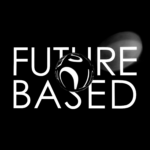The cyber space is a non-neutral space of constant contestation. Multiple dualisms ensue; the individual and the space, the individual and the platform and the individual with their own self-image. It becomes really important, then, to critically engage with the space, decolonize it and reclaim it. The hyper presence of the algorithm in our daily lives means our awareness and engagement need to be active as much as it is theoretical. This reading group ensures just that.
During the course of this reading group, we will look at the (in)justice which this contestation brings. Since the algorithm and its ensuing injustice are both ubiquitous, we will look at the various areas of human experience which they touch. The 10 areas detailed below grant us 10 sessions of discussion, and 10 opportunities to build a creative manifesto of the ideas discussed. The results of the discussion and the creative process will then be on display.
This reading group is initiated and curated by Abdo Hassan, as part of the Future based platform.
Reading session #4 IDENTITY: Digital dualism, cyborg-ism and the crisis of representation
In “Cyborg Manifesto”, Donna Harraway teaches us to think about the world as a mesh of humans and machines, mediated by discursive and linguistic rules. It is then important for us to reflect on our own positionality in this entanglement; how is our ‘identity’ formed and performed in light of the new spacial dynamics granted to us by the internet? In this session of Algorithmic (in)equalities, we reflect on digital identities on three levels, philosophically, socially and ethically.
Philosophically, we interrogate the notion of ‘digital dualism’ and the imagined separation of the physical from the virtual? Where does the human body start and end? how do we ‘extend’ it with algorithms? How do our perceptions of what is ‘real’ and what is ‘virtual’ affect our point of view of what is ‘authentic’?. As our identities are constantly being tracked, archived and curated, we discuss how digital footprints add newer, exciting dimensions to the historicity of the self.
The algorithmic subject is said to be in constant motion, code-switching between platforms and contexts. A user’s persona on Facebook often entails a different curatorial practice than their Instagram persona, and yet the code-switching is not always a restriction. Code-switching allows otherwise marginalized societies to exist, connect and dodge censorship measures. Here we must address the question of platform bias. Namely, how platforms encourage the creation of some identities while excluding others?
The 1993 Newyorker comic, “On the internet, no one knows you’re a dog” is an illustration of classic ethical dilemmas of cyberspace; It is an ode to the joys and setbacks of having an anonymous, non-monolithic identity. Digital identities are highly prone to quantification, which makes them an attractive candidate for reproduction, prediction, and theft. In this session, we interrogate the ethics of identity politics as rebranded by algorithms. How can we rethink, reclaim, better perform our identities on a stage that we often don’t understand?
This Future Based Reading Session will take place the 18th of February at De Utrechtse Boekenbar, Westerkade 2 Utrecht. Start at 19:30 – 21:30.
Tickets:
Banner by Dana Dijkgraaf Design.
